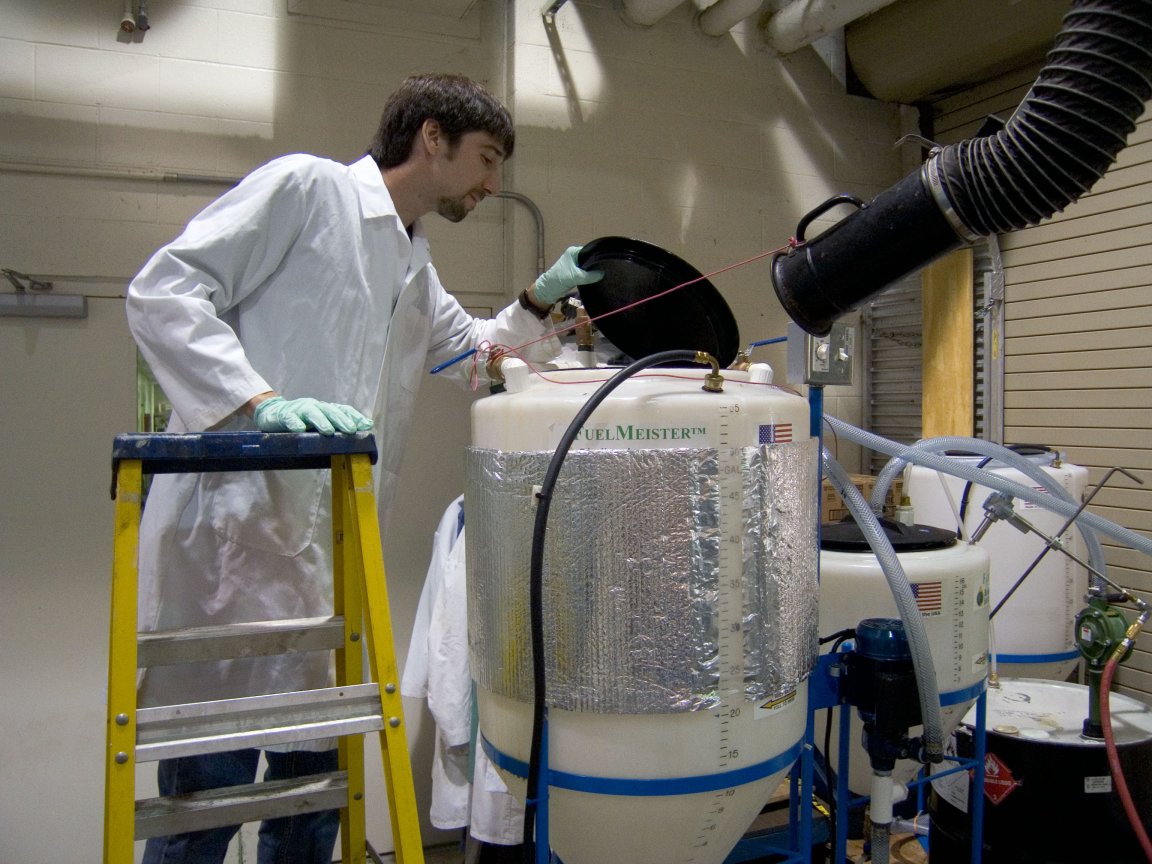
The Breakthrough
Using simple catalysis, the researchers have been able to recycle a non-desired by-product produced when biodiesel is formed from vegetable oil, and convert this into an ingredient to produce even more biodiesel. The new catalyst converts crude glycerol, which is a waste product generated during production of biodiesel from vegetable oil, into methanol. The methanol is then be used as a starting reactant to create more biodiesel. The breakthrough was published in Nature Chemistry.
The Implications
It is believed this new process will have significant environmental benefits by improving the yield of biodiesel in a sustainable way that doesn’t require the use of additional fossil fuels, and could potentially reduce the costs of the biodiesel production process.